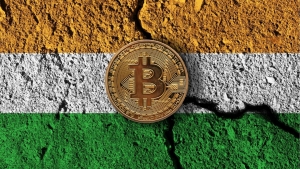Blockchain Research
China’s vision of crypto-free blockchain is coming into focus
Remember when more crypto was traded in China than any other country in the world? Though it was less than five years ago, it seems like a lifetime ago. In 2021, China accelerated a long-running crackdown on decentralized virtual currencies, banning just about everything crypto-related but possession. While some diehard crypto enthusiasts in China may carry on, Beijing has made crypto trading more trouble than it is worth for most Chinese. With crypto out of the way, Beijing can now concentrate on developing its own blockchain ecosystem.
India plans crypto tax, greenlights CBDC
Why ban crypto when you can discourage its use by taxing it heavily? That seems to be at least part of the rationale behind India’s plan to forego a ban on decentralized virtual currencies but tax income from digital assets at a flat 30% rate with no deductions or exemptions. At the same time, India plans to go ahead with a digital rupee by early 2023.
Thailand takes middle road on crypto
Somewhere in between the El Salvador and China approaches to crypto is a middle road, neither a full-throated embrace nor a strict ban. Call it crypto agnostic. Thailand appears to be taking that road, allowing the digital assets business to grow organically, while gradually implementing regulations as needed. For Thai regulators, the priority is not developing a regional hub for decentralized virtual currencies – that is more of a Singapore project and something Japan has considered – but simply ensuring they are used in a manner beneficial for the country’s economy and overall society.
Clarifying India’s crypto policy
2021 has been a pathbreaking year for decentralized digital currencies. They have made more headway into the mainstream financial system than in any previous year. The Indian government has been watching these developments closely and has quietly walked back its erstwhile anti-crypto stance. A blanket ban of crypto no longer makes sense for India, as it would be both detrimental to financial inclusion and cashless payments objectives, while offering questionable benefits for combating money laundering and terrorism financing.
Taiwan is unlikely to become a crypto hub
Taiwan’s financial sector is known for its conservatism, so it is no surprise that the island has not embraced cryptocurrency. Yet, to their credit, nor have Taiwan’s regulators taken an overly harsh approach to decentralized digital currencies. Unfortunately, the lack of regulatory clarity that initially allowed crypto to gain a foothold in Taiwan is not sufficient for the island to become a hub for the industry.
Australia might be warming to crypto
Australia may be reaching its crypto inflection point. Canberra has never repudiated crypto but nor has it embraced decentralized virtual currencies. However, as other countries in the Asia-Pacific region like Singapore and Japan step up their efforts to become crypto hubs, Australia is realizing that decentralized digital currencies offer it an opportunity as well. A report published by Australia’s Senate in late October recommends that the country alter its laws to make them more amicable to crypto.
Crypto seems to have a way forward in India
One after another, Asia’s major economies are developing their crypto policies. Singapore and Japan have decided to embrace decentralized digital currencies, albeit in a step-by-step manner. South Korea is less sanguine, although it is stopping well short of China’s near-blanket ban. As for India, it once seemed to be moving in the direction of a crypto ban, but that seems less feasible by the day given the industry’s burgeoning expansion and the potential benefits of that growth for the overall Indian economy.
CBDCs gain momentum in Southeast Asia
Southeast Asia is fast warming to central bank digital currencies (CBDCs) with Laos the latest country in the region to signal its intention to develop one. What makes Laos’s situation unique is that the same Japanese company that developed Cambodia’s retail CBDC, Project Bakong, will be involved in exploring the possibility for a digital kip (the Laotian currency).
Japan works to balance crypto risk and reward
Japan is one of the top contenders for the Asia crypto crown. The only other jurisdiction that can challenge it is Singapore. Hong Kong is no longer in the running given the city's close links with mainland China and Beijing's tough approach to decentralized digital currencies. But before Japan can solidify its status as an Asian crypto hub, it first needs to figure out how to better regulate crypto to protect investors and safeguard against malfeasance.
Australia is on the fence about crypto
Australia has yet to make up its mind about crypto. On the one hand, it allows crypto exchanges. It has dozens of them. Finder estimated that 17% of Australians own cryptocurrency in a June survey. There are no regulations banning the holding or trading of cryptocurrencies. However, Australia’s incumbent financial institutions are ambivalent about decentralized digital currencies and generally stay away from them.
More...
India is coming around to the idea of a digital rupee
It seems that just about every major Asian economy is warming to the idea of a CBDC now, and India is no exception. Shaktikanta Das, governor of the Reserve Bank of India (RBI), said recently New Delhi may be ready for digital rupee trials by year-end.
What’s happening with CBDCs in Southeast Asia?
Southeast Asia is home to some of the world’s fastest growing economies and is rapidly adopting digital financial technology, including blockchain-based solutions. Thus, it is only natural that central banks in the region are starting to think about a possible role for digital fiat currencies. The first country to make the jump to a CBDC is Cambodia, and it will definitely not be the last.
Can Singapore become a crypto hub?
Try as it might, the cryptocurrency industry has not yet been able to shake its reputation for being not quite above board. The rebellious, underground side of crypto has won it many devoted fans – just not usually among financial regulators. But what if crypto – like many segments of Asia’s fintech industry – found a home in Singapore?
South Korea is keener on a CBDC than crypto
The crypto party may be over in South Korea, where the government is less than ecstatic about the widespread use of decentralized virtual currency in its economy. Unlike Japan, a crypto pioneer that has always been tolerant of decentralized digital currency, South Korea sees it as somewhere in between an annoyance and systemic financial risk. Seoul is now moving to curtail crypto’s influence in the country through strict regulation and higher taxation.














